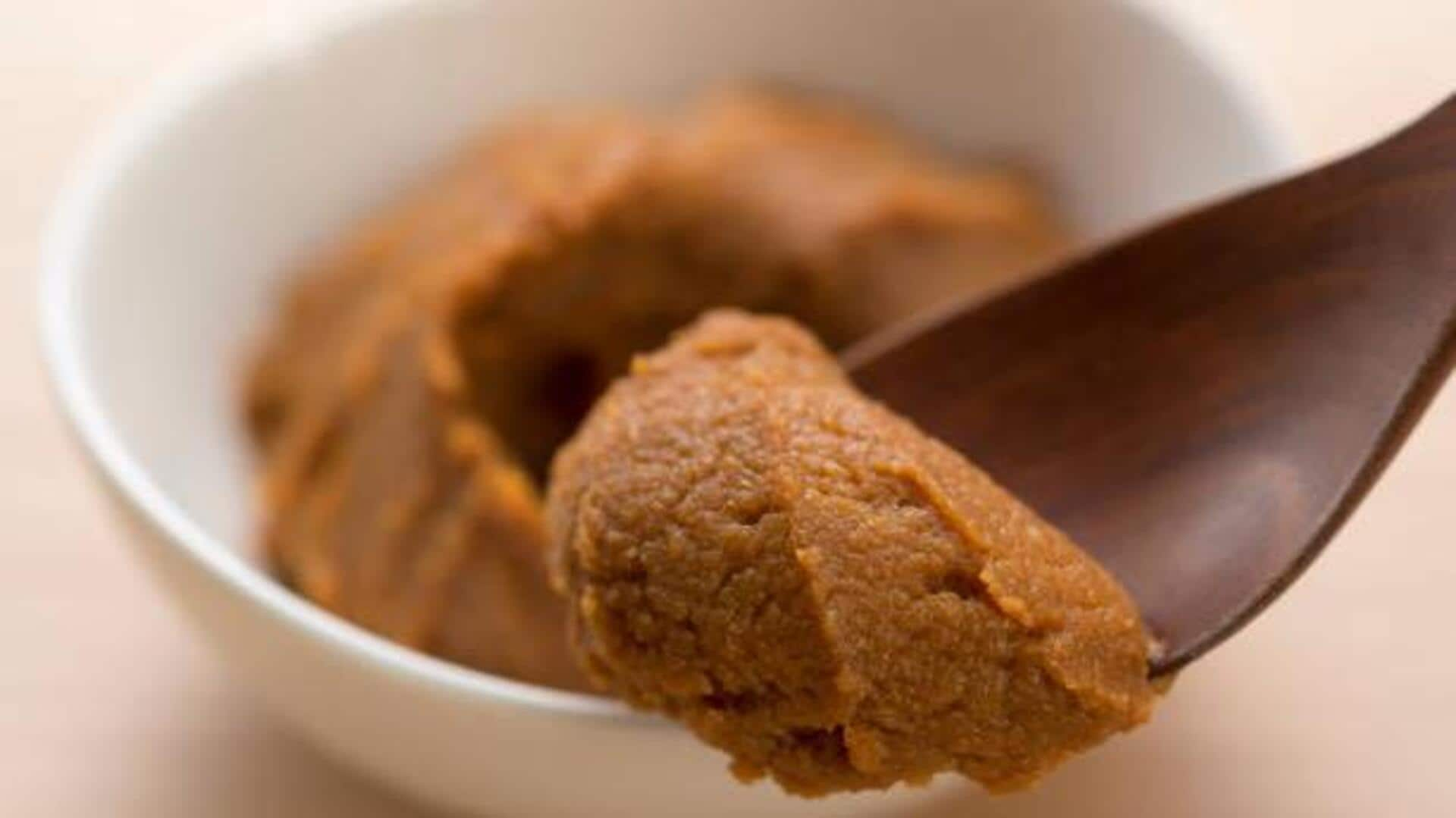
Miso paste: The secret behind flavorful dishes
What's the story
Miso paste, a staple in Japanese cuisine, is gaining popularity for its unique flavor and health benefits. Made from fermented soybeans, miso adds depth to soups, sauces, and marinades. Its rich umami taste enhances the simplest of dishes, making it a versatile ingredient in any kitchen. Apart from its culinary uses, miso is also known for its probiotic properties, which promote gut health.
Fermentation
The fermentation process
The making of miso starts with fermenting soybeans with a culture called koji. This process can take from a few months to several years, depending on the type of miso being made. The longer the fermentation, the stronger the flavor. The process not only gives miso its distinct taste but also makes it rich in enzymes and beneficial bacteria that support digestion.
Varieties
Types of miso paste
There are several types of miso paste available, each with its own flavor profile. White miso is sweeter and milder as it ferments for a shorter period. Red miso has a stronger flavor due to longer fermentation. Yellow miso sits somewhere in between these two extremes. The different varieties make it easier to choose the right one according to your recipe requirements.
Cooking tips
Culinary uses of miso
Miso paste can be used in various ways beyond traditional Japanese dishes like ramen or miso soup. It can be used as a marinade for vegetables or tofu, or mixed into salad dressings for added depth of flavor. Some chefs even use it as an ingredient in desserts like cookies or ice cream to create unexpected flavor combinations.
Nutrition
Health benefits of miso
In addition to its culinary versatility, miso also offers several health benefits. It is rich in protein and contains essential vitamins like B12 and K. The probiotics present in fermented foods like miso help maintain gut health by promoting the growth of good bacteria in the digestive system.